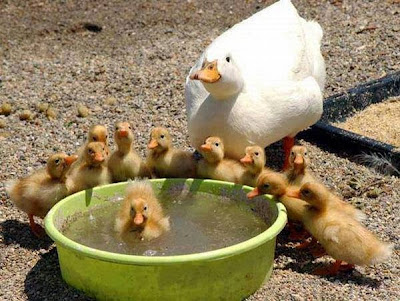Friday, January 31, 2014
Thursday, January 30, 2014
Wednesday, January 29, 2014
Tuesday, January 28, 2014
Monday, January 27, 2014
Starwars tubelight
If you want some hacky art with your vertically mounted tubelight a Jedi's sword can be a better option than a pirate ;)
Sunday, January 26, 2014
Fishing 101 for cats
Saturday, January 25, 2014
Thursday, January 23, 2014
Wednesday, January 22, 2014
Tuesday, January 21, 2014
Monday, January 20, 2014
Your digital will
The digital generation has shifted every thing from books and studies to gaming and entertainment to the internet, but there's one important thing that they've been missing. How do they leave messages for the future generations, how do they leave their last remarks and what happens to their online identities once they die. Will they float on the internet forever or should they be totally removed? On most services it is one way or the other by default. Your account may become inactive (and removed) by time or it may never be deleted even if you don't use it.
Google has made it easier by introducing the inactive account manager and letting you control what happens to your account and private data once you stop logging in to your account for a time period you've set.
Control what happens to your Google account, and probably most of your internet presence (if gmail is your primary email address), when you stop using it, forget the password for good, are indisposed over a long time or die.
It may act as your digital will or digital after life. It also confirms the recipients' cell number along with their email ID so that only and only that person can be sent a verification to sign in and collect your data. This is what Google has to say about it. You may alternatively archive and download all your emails or data from other Google products and save it on your hard disk.
There's another thing you can use this feature for. By setting up a time limit, say if you haven't logged in for 18 months, after which your account becomes inactive and then a set of emails you have written would be automatically triggered and sent to each recipient.
See also:
https://support.google.com/accounts/answer/3036546?hl=en
http://mashable.com/2013/04/11/google-inactive-account-manager-death/
http://techcrunch.com/2013/04/11/googles-afterlife/
Sunday, January 19, 2014
Thursday, January 16, 2014
Wednesday, January 15, 2014
Bring your alligator, Bob
Tuesday, January 14, 2014
Monday, January 13, 2014
Sunday, January 12, 2014
Battery life optimization
Lithium ion batteries which are mostly used in the current laptops and cellphones, are better charged often than fully discharged and charged again each time. Totally discharging the battery will damage the cells. Shallower discharges are also said to have better effects according to some research.
This doesn't mean that you need to start searching for a power source as soon as possible, the notification that comes at 10-11% of your battery to plug in a power source is already calibrated so that you charge your battery from that point onward instead of completely depleting it. Same goes for your smart phone as it automatically turns off instead of completely depleting your Li-ion battery.
Conclusion: Discharging your battery up-til the last bar of your cell phone (or even till the low battery notification is fine but not above that... same goes for the laptop (in this case till the 7-11% notification).
Further information:
- Storage: Lithium ion batteries oxidize the least at atleast 40% of charge left in them which is the best way to store them for longer periods. Long term storage of a fully charged battery is also damaging because of the leaks where as storing a depleted battery damages the cells.
- Over charging: Overcharging should only be performed for calibration of the software and is other wise damaging to the battery.
- Should I disconnect my laptop charger after it is fully charged?
No, the laptop discontinues charging after the battery is fully charged and it is safe to keep it connected. Infact, this prevents unnecessary usage of battery and all together skips the charging / discharging fatigue of the battery by using the AC power instead (the cell phones don't use AC power like laptops even if connected to charger).
Saturday, January 11, 2014
Friday, January 10, 2014
Subscribe to:
Comments (Atom)

















































